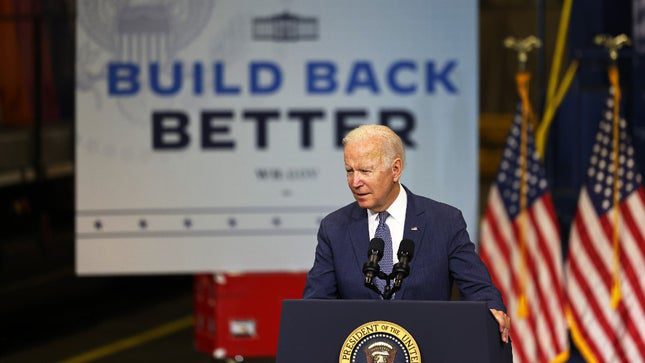
On Friday, the House Congress passed a $1 Trillion Bipartisan Infrastructure Bill, planning to spend an extra $550 billion to renovate US’s utility infrastructure and transportation in the next five years.
This deal will refurbish roads, rails, bridges, increase access to WiFi, and increase access to clean drinking water. This will also lead to improving the supply chains by fixing the nation’s ports and rails.
Other than that, the bill also states to deal with climate change, an increase of well-paid union jobs, and an addition of 1.5 million jobs per year for the next ten years, combined with the President’s Build Back Framework.
This deal came about after tense negotiations and delays due to friction between moderate and progressive Democrats. It passed on late Friday night, with 13 Republicans joining sides with 215 Democrats supporting the bill. However, six progressive democrats were against the bill, due to a shortage of support for larger social spending. There were 2 Republicans, Rodney Davis and Darin LaHood representing Bloomington- Normal, also voting against the bill.
Here’s what’s in the infrastructure bill:
Roads and Bridges
The bill plans to spend $110 billion on roads and bridges, including $40 billion for bridge reconstruction and repair and $16 billion for other major projects. The bill also contains an additional $11 billion for transportation safety and $1 billion to reconnect communities, especially the Black neighborhoods separated by various past infrastructures.
Public Transit
The bill text states that $39 billion will go to modernizing public transport and improving accessibility. According to the White House, these funds will also replace thousands of vehicles with zero-emission models. There are also plans to invest $66 billion in passenger and freight rail and $12 billion in partnership grants for intercity rail service.
Broadband Upgrades
The bill text includes $65 billion for power grids up-gradation, aiming to help reduce prices households pay for internet service. This investment will further help low-income households to access the internet by creating permanent federal programs.
Fixing airports, waterways, and ports
The plan provides funding of $25 billion for airport repair, reducing emission and congestion. According to the White House, this will promote conversion to electric vehicles and other low-carbon producing technology. The bill also states that it will invest $17 billion in port infrastructure.
Electric Vehicles
The bill plans to spend $7.5 billion to build networks of charging stations to help further the conversion to non-fossil fuel cars. Another $7.5 billion will go to operating zero to low emission busses and ferries.
Upgrading power grids and water systems:
The bill plans to spend $65 billion for power grid updates, building thousands of miles of new transmission lines for renewable energy and technologies like carbon capture and nuclear reactors.
It would also provide $55 billion to repair the water system, replace lead pipes, and service lines. In addition, $50 billion will also be invested to make the system less vulnerable to floods, drought, and cyberattacks.
Environmental Spending
The bill has also provided funding for environmental remediation with $21 billion dedicated to cleaning Superfund and brownfield sites and cap used gas wells.
In the 57-page summary of the bill text, lawmakers suggested utilizing the unspent Covid-19 relief funds for the legislation. The bill also lists an option to terminate the pandemic unemployment benefits earlier, which would gather up to $53 billion.
The bill also seeks to increase tax reporting rules for cryptocurrency investors and raise about $50 billion by charging Superfund fees on organizations that pollute.
Other than that, the bill’s summary also states to delay the Medicare rebate rule enacted under the former President, gathering about $49 billion in savings. In addition, the infrastructure improvement plans will generate about $56 billion due to tax revenue economic growth, though that is only an assumption. There are also plans for Spectrum auction sales but the CBO found that would generate much less than $87 billion initially claimed by the lawmakers.
